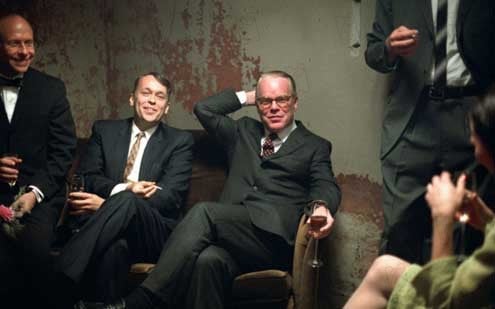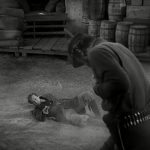🎬 Capote (2005)
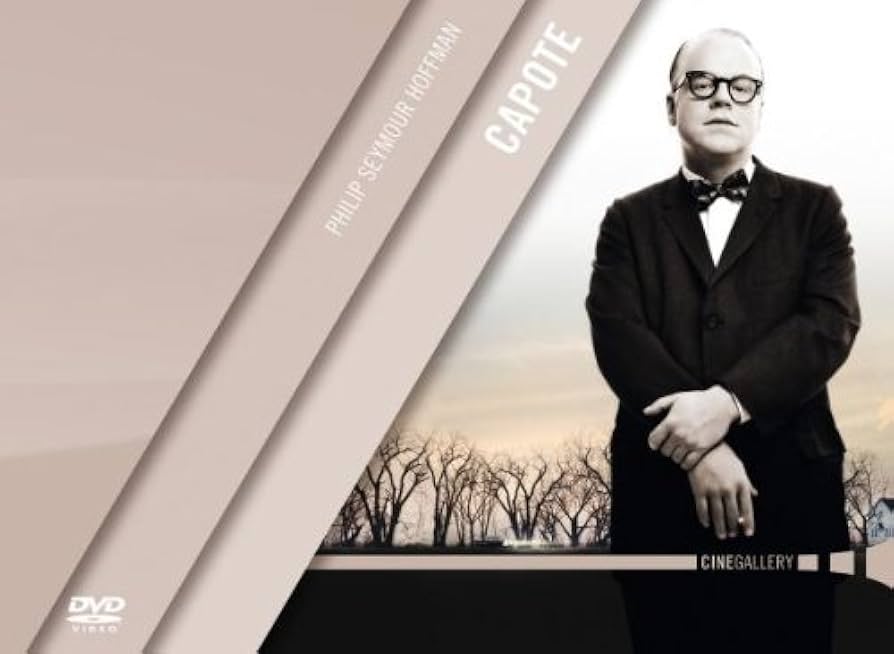
🎬 Capote (2005): The Dark Journey of a Literary Genius
Capote, directed by Bennett Miller, is a gripping biographical drama that delves into the life of renowned author Truman Capote, portrayed brilliantly by Philip Seymour Hoffman. The film explores the events surrounding Capote’s writing of his groundbreaking novel In Cold Blood, which chronicles the brutal murder of a Kansas family and the subsequent investigation. The narrative offers a profound insight into the complexities of Capote’s character, his creative process, and the moral dilemmas he faced while striving for literary perfection. 📖✍️
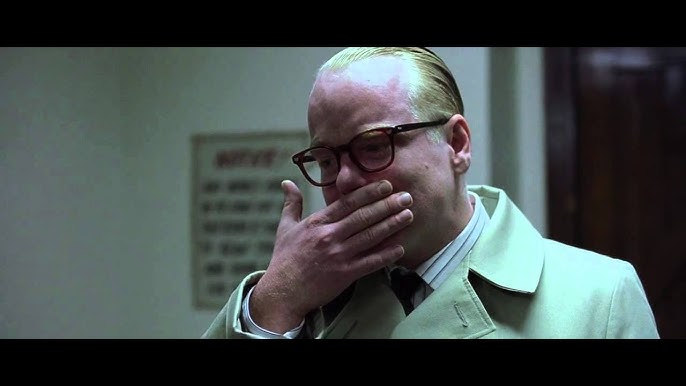
Set in the 1950s, the film follows Capote as he becomes engrossed in the story of the Clutter family’s tragic death, immersing himself in the lives of both the victims and the killers, Perry Smith and Richard “Dick” Hickock. As Capote befriends Perry during his time on death row, the film explores the intense psychological connection between the two men. This relationship is central to the film, highlighting Capote’s struggles with empathy, ambition, and the ethical implications of his work. 💔🕵️♂️
Philip Seymour Hoffman’s performance as Capote is nothing short of transformative, capturing the author’s flamboyant personality, sharp wit, and deep insecurities. Hoffman’s portrayal earned him the Academy Award for Best Actor, as he deftly navigates the emotional and moral complexities of Capote’s character. The film also features stellar performances from Catherine Keener as Harper Lee, Capote’s close friend and confidante, and Clifton Collins Jr. as Perry Smith, whose haunting presence adds depth to the narrative. 🎭🏆
The film’s cinematography and direction create a moody, atmospheric backdrop that reflects the dark themes of the story. The attention to detail in recreating the period enhances the authenticity of the narrative, immersing the audience in Capote’s world. The film balances moments of tension with poignant reflections on the nature of fame, friendship, and the cost of artistic ambition. 🖤📽️
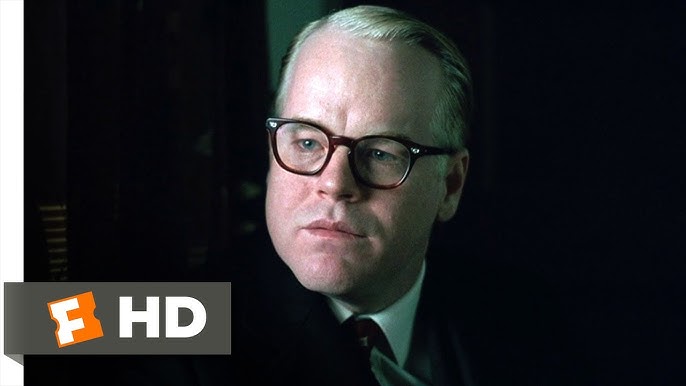
Capote explores the dichotomy between the pursuit of artistic excellence and the personal sacrifices it entails. As Capote grapples with his ambition, the film raises questions about the ethics of storytelling and the responsibilities of the writer. The narrative ultimately reveals the toll that the true crime genre takes on Capote, as he becomes increasingly consumed by his subject matter and the consequences of his actions. ⚖️📚
The film was met with critical acclaim, praised for its powerful performances and insightful storytelling. It offers a nuanced portrayal of a complex figure, capturing the essence of Capote’s genius while also exposing the vulnerabilities and contradictions that defined his life. Capote serves as a poignant reminder of the fine line between creativity and obsession, leaving audiences with a lasting impression of the man behind the iconic works. 🌟💔
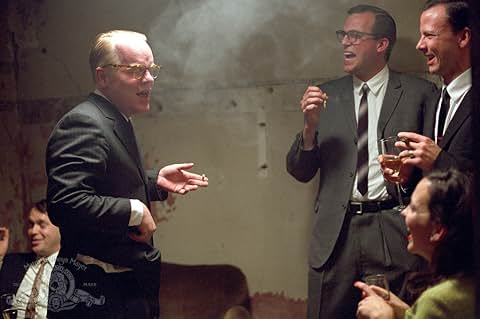
In conclusion, Capote is a captivating exploration of the life and mind of one of America’s most enigmatic literary figures. With its rich character study, haunting performances, and thought-provoking themes, the film stands as a testament to the intricate relationship between art and morality, ultimately celebrating the legacy of Truman Capote while grappling with the darker aspects of his journey.
